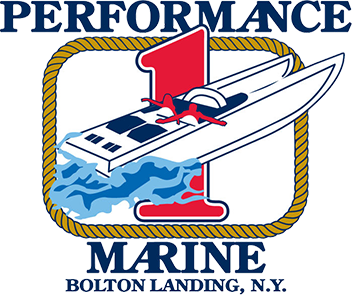Linking Lake George with Tech Valley, Environmental Protection with Economic Development
What if the kind of advanced computational technology that monitors wave conditions, marine life and pollution levels and distributes information in real-time, which IBM is now testing in Ireland’s Galway Bay, were to come to the Adirondacks?
According to Dr. John Kelly, the Assembly Point resident who happens to lead IBM’s research teams and who addressed the Warren County Economic Development Corporation’s annual luncheon in Queensbury on May 17, it would mean not only smarter environmental management but economic development.
“We have the opportunity to do something big; we could build a model for balancing economic growth and environmental protection,” said Kelly, who, among other things, helped found the NanoTech complex in Albany.
In Galway Bay, IBM’s collaboration with the Marine Institute has led to the creation of new businesses by Irish technology companies and has strengthened local industries such as fishing and tourism.
Throughout the Hudson Valley, from IBM’s Research Center in Yorktown Heights to Albany and Saratoga County, technology has created “fantastic jobs and fantastic growth,” Kelly said, adding that the Adirondack Park could be the next place to benefit.
At the very least, Kelly suggested, a research project here would create jobs for scientists and technicians, who in turn would attract others to the Adirondacks.
“Techies want to live and work together, and the Adirondack environment provides them with many of the things they want,” he said.
“Talk about location, location, location: Warren County is a very special place. Situated at the northern end of Tech Valley and the southern end of the Adirondacks, we are near the technology, the talent pool and the computation capability that is second to none,” said Kelly.
“What can we do here, with this special location and in this special place?” he asked.
The world is now in an era of “big data,” Kelly said. 90% of the world’s data has been created only in the last two years, generated by everything from smart phones to sensors.
“By 2015, the number of bytes of information being generated will be equal to the numbers of the stars in the universe,” he said. “Human beings cannot deal with this data deluge.”
Harvesting and utilizing data with the next generation of computers, known as cognitive systems, presents new opportunities for collaborative efforts among universities, businesses and government.
Should such a collaboration take place near Lake George, one by-product, if not its purpose, would be “the better understanding of the Adirondacks, and its preservation,” said Kelly.
Linking environmental protection with economic development, and leveraging one with the other, has long been of interest to Kelly, who serves as a trustee of The Fund for Lake George.
“There’s this tension that exists between environmental protection and economic development, but I believe the two can co-exist very successfully. But it will take a lot of academic study and great people thinking about it and participating in the discussion,” Kelly said earlier this year at the dedication of Union College’s Adirondack Research Center.
The center, located in the former home of conservationist Paul Schaefer and housing the Adirondack Research Library, has been named the Kelly Adirondack Center in honor of Kelly and his wife Helen-Jo.
Kelly “is a local boy,” said Mark Behan, the president of Behan Communications, who introduced Kelly at the luncheon.
He grew up in the capital district, where his father worked at General Electric’s research lab in Niskayuna. He was educated at Union College and RPI, where he received a Master’s degree in Physics and a PhD in Materials Engineering. He is a trustee of both Union and RPI.
Kelly joined IBM in 1980 and in the years since then he has helped lead the company’s semiconductor, microelectronics and storage businesses. He is now Senior Vice President & Director of Research for IBM, from which he oversees a team of more than 3,000 scientists and technologists at 10 laboratories in 10 countries.
“I do get to travel the world, but nothing beats being here in Warren County,” said Kelly.





